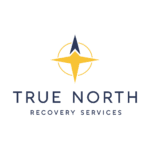Dealing with alcohol and prescription drug addiction at the same time is challenging but achievable. These dual addictions often feed into each other, creating a dangerous cycle that can be difficult to break without the right treatment. However, with proper intervention and support, it is possible to overcome both simultaneously and reclaim your life. Understanding how these addictions interact, the risks they pose, and the steps to recovery are essential for anyone facing this struggle.
Why Alcohol and Prescription Drug Addiction Occur Together
The connection between alcohol addiction and prescription drug abuse is complex, but it’s not uncommon for these addictions to co-occur. Prescription drugs, especially opioids, benzodiazepines, and stimulants, are often prescribed for pain, anxiety, or attention disorders, but their misuse can lead to addiction. Many individuals turn to alcohol as a means of enhancing the effects of these drugs or coping with emotional pain, stress, or withdrawal symptoms from one substance or the other. Unfortunately, the combination of these substances increases the risk of severe health consequences and heightens the addictive grip.
Addiction to both alcohol and prescription drugs is sometimes rooted in underlying mental health disorders, such as depression or anxiety. This creates a vicious cycle where people use substances to self-medicate, which only worsens their mental health, prompting more substance use. This cycle makes it crucial for individuals to seek help that addresses both substance use and any co-occurring mental health issues.
The Dangers of Combining Alcohol and Prescription Drugs
Combining alcohol with prescription drugs can lead to life-threatening situations. Each substance affects the brain in different ways, but when taken together, they amplify the effects, particularly the sedative and depressive impacts on the central nervous system. This can result in:
- Respiratory Depression: Opioids and alcohol both slow breathing. When taken together, they can cause severe respiratory depression, leading to a fatal overdose.
- Increased Risk of Overdose: Alcohol can reduce inhibitions and impair judgment, leading individuals to take higher doses of prescription drugs, increasing the likelihood of an overdose.
- Liver Damage: Both alcohol and many prescription drugs are metabolized by the liver. Over time, this double burden can lead to liver failure or cirrhosis.
- Cognitive Impairment: Prolonged use of both alcohol and drugs can lead to permanent cognitive issues, such as memory loss, difficulty concentrating, and poor decision-making.
Steps to Overcoming Alcohol and Prescription Drug Addiction
While overcoming alcohol and prescription drug addiction can seem daunting, it is possible with the right plan and support. Here’s a breakdown of the key steps involved:
- Medical Detoxification
The first step for anyone dealing with both alcohol and prescription drug addiction is medical detoxification. Detox is crucial because withdrawing from these substances can be dangerous, especially when they’ve been used for a long period. Symptoms like seizures, hallucinations, or extreme anxiety can occur, making a medically supervised detox essential to ensure safety and comfort. - Integrated Treatment Programs
Treating both alcohol and prescription drug addiction requires an integrated approach. This means that the treatment plan should simultaneously address both addictions rather than focusing on just one. Integrated treatment involves a combination of individual counseling, group therapy, and medical treatment to address the physical, emotional, and psychological aspects of addiction. - Dual Diagnosis Treatment
As many individuals struggling with alcohol and prescription drug addiction also have underlying mental health disorders, addressing these mental health issues is critical for recovery. Dual diagnosis treatment offers a comprehensive approach that treats both the addiction and the mental health disorder. Without this, individuals are at a higher risk of relapse, as untreated mental health conditions can fuel substance use. - Behavioral Therapy
A cornerstone of addiction recovery is Cognitive Behavioral Therapy (CBT), which helps individuals understand and change the behaviors that contribute to their addiction. CBT focuses on helping people develop healthier coping strategies for dealing with stress, trauma, and other triggers that may drive substance use. Other therapeutic approaches, such as Dialectical Behavioral Therapy (DBT), may also be employed to help individuals regulate emotions and improve interpersonal relationships. - Support Networks
Recovery from alcohol and prescription drug addiction requires a robust support system. Support groups, like Alcoholics Anonymous (AA) and Narcotics Anonymous (NA), provide a community of people who understand the challenges of addiction and recovery. These groups follow a 12-step approach that emphasizes accountability, personal growth, and continuous support. Many people find that being part of such a group helps prevent relapse and fosters long-term recovery. - Aftercare and Relapse Prevention
Recovery doesn’t end with the completion of a treatment program. Ongoing support is vital to maintain sobriety and prevent relapse. This may include continued participation in support groups, regular therapy sessions, and developing a strong network of sober friends and family. Some individuals may benefit from living in a sober living facility, which provides a structured, supportive environment as they transition back into everyday life.
How True North Recovery Services Can Help
True North Recovery Services is a leader in providing comprehensive treatment for those struggling with both alcohol and prescription drug addiction. Their holistic approach focuses on addressing the physical, emotional, and psychological aspects of addiction, helping individuals achieve lasting recovery. At True North, they offer:
- Medically Supervised Detox: Their team provides 24/7 medical care during detox to manage withdrawal symptoms safely.
- Integrated Treatment Programs: True North’s personalized programs address both alcohol and prescription drug addiction simultaneously, ensuring that each individual’s unique needs are met.
- Dual Diagnosis Treatment: True North specializes in treating co-occurring mental health disorders, which often accompany addiction. This dual approach ensures a higher chance of successful, long-term recovery.
- Comprehensive Aftercare: True North offers ongoing support and relapse prevention strategies, including therapy and support groups, to help individuals maintain their sobriety after completing treatment.
If you or a loved one is battling alcohol and prescription drug addiction, reach out to True North Recovery Services to start your journey toward a healthier, sober life.
Taking a Step Towards Recovery
Overcoming the dual challenge of alcohol and prescription drug addiction is possible with the right support and treatment. By understanding the dangers, seeking professional help, and embracing a comprehensive treatment plan, you can break free from the cycle of addiction and lead a healthier, more fulfilling life. True North Recovery Services is here to guide you every step of the way, offering the compassionate care you need to reclaim your life.


